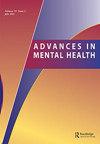A pilot study of acceptance and commitment therapy to improve teachers’ psychological well-being
IF 1.7
Q3 PSYCHIATRY
引用次数: 1
Abstract
ABSTRACT Objective: This study evaluated a three-session self-guided, online Acceptance and Commitment Therapy (ACT) treatment program aimed at improving teachers’ psychological well-being (PWB) with diverse occupational attributes. Method: A total of 80 participants were screened with the Ryff’s Scales of Psychological Well-being to understand individual differences among teachers in terms of experienced PWB. Based on specific eligibility criteria, 40 teachers were randomised to intervention (n = 20) or waitlist control condition (n = 20) group. Additionally, intervention group participants’ attitudes regarding the effects of the program were recorded online during interviews and analyzed through content analysis. Results: The results of the primary phase indicated significant differences in teachers’ PWB based on their professional experience, teaching context, and education level. These occupational variables, as well as teachers’ income, significantly contributed to the variances in teachers’ PWB. Regarding the effects of the program, we found improvements in teachers’ PWB at post-assessment with a moderate effect size (η2 = .60). In the end, the interview results indicated that teacher participants had positive attitudes toward the program and its implementation method by emphasising its practicality and feasibility. Discussion: Given the small number of participants, the results provide tentative support for the efficacy of a self-guided, online ACT-based treatment program for improving PWB in teachers. The results also present implications for school counsellors and teacher educators to use the program in an educational system with poor infrastructure during times of crisis.接纳与承诺疗法改善教师心理健康的初步研究
摘要目的:本研究旨在评估一种旨在改善不同职业属性教师心理健康的三段式在线接受与承诺治疗(ACT)。方法:采用瑞夫心理健康量表对80名被试进行筛选,以了解教师在经历工作压力方面的个体差异。根据特定的资格标准,将40名教师随机分为干预组(n = 20)和候补对照组(n = 20)。此外,在访谈过程中,干预组参与者对项目效果的态度被在线记录,并通过内容分析进行分析。结果:初级阶段的调查结果显示,教师的PWB在专业经验、教学情境和受教育程度上存在显著差异。这些职业变量以及教师的收入对教师PWB的方差有显著影响。关于该计划的效果,我们发现教师的PWB在后评估中的改善具有中等效应大小(η2 = 0.60)。最后,访谈结果表明,教师参与者对该计划及其实施方法持积极态度,强调其实用性和可行性。讨论:考虑到参与者人数较少,研究结果为基于act的自我指导在线治疗方案改善教师PWB的有效性提供了初步支持。研究结果还为学校辅导员和教师教育工作者在危机时期在基础设施薄弱的教育系统中使用该项目提供了启示。
本文章由计算机程序翻译,如有差异,请以英文原文为准。
求助全文
约1分钟内获得全文
求助全文

 求助内容:
求助内容: 应助结果提醒方式:
应助结果提醒方式:


